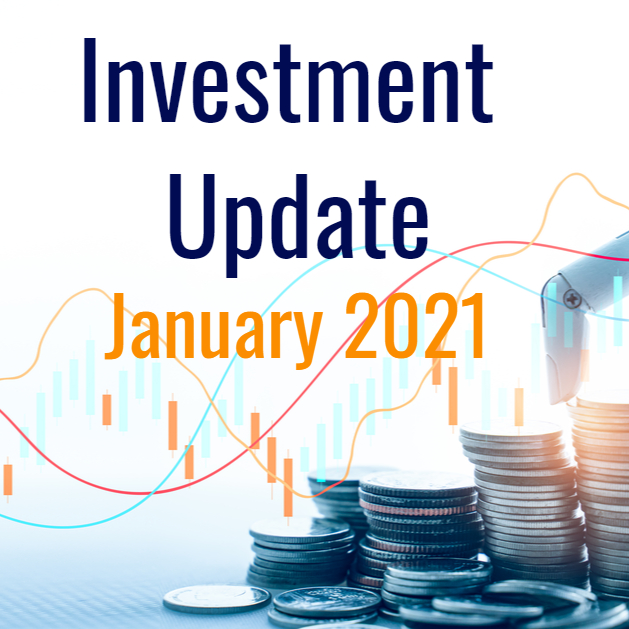Past experience has taught us that market environments that feature cheap financing, easy access to investments, the incentive to engage in speculative activity, and a technological or political “spark” tend to lead to bubbles.
Bond prices are so elevated that a quarter of all global bonds are trading with negative interest rates. Tesla now has a market cap bigger than all major listed automakers in Europe, Japan, and the US combined. Bitcoin’s price almost quadrupled in just three months. Most recently, GameStop (a failing retail business) has risen 1,036% in the last month, based on a cult-like following from a Reddit forum, and this has now been replicated with Blackberry and AMC theatres. Has the world truly gone mad?
Last year, we noted that ultra-low interest rates and government stimulus would push investors toward accepting the idea that “There Is No Alternative” to equities. This idea is now more widely accepted and is leading to individual speculative bubbles. But with new fiscal stimulus being added to already comprehensive monetary policy, we think the equity market overall still looks appealing relative to bonds.
So we should expect to see some bubbles emerging. Identifying bubbles whilst they are occurring is notoriously challenging and there is often greater risk trying to time the markets or sell short than there is in simply holding positions over the longer-term. In short, we do not think equities as a whole are in a bubble, although we do see signs of irrational exuberance in the tech area. Although Government bonds appear to be in a bubble by many metrics, this bubble is unlikely to pop, given that it is supported by policymakers themselves. However, cryptocurrencies are a completely different ballgame and anything could happen at any time with them. They come with a very serious wealth warning.
Since December, significant global events have occurred. The global vaccination programme beginning around the world, the Democrat win in the US and here in the UK, the Brexit deal being agreed with the European Union. In financial markets, these events have been received positively. Equities have reached new highs in the US and the FTSE-100 Index has been out-performing other developed markets. This month’s storming of Capitol Hill by Trump supporters, while disturbing and dramatic, had little impact on financial markets. However, the prospect of economic recovery and increased spending by the Democrats has led to higher yields in the US Treasury market.
In terms of the Brexit deal, the financial services sector was excluded, and the expectation of a last-minute deal had been growing, which may explain why it had little impact on currencies. The Dollar had been weaker, but against the Euro, the Pound is little changed. The UK did perform better than other developed markets at the start of 2021, but this is mostly due to the heavy weighting in the outperforming Energy and Materials sectors.
We urge clients to take a longer-term stance when considering investing. Although it can be tempting to invest based on newspaper articles and market hype, this is often a way to lose money at an alarming rate. Remember, if you can see the bandwagon coming into town, you have already missed it.
Author
-

Foresight Wealth Strategists have been providing extensive financial planning advice to Hale and the surrounding areas for 25 years - info@foresightws.co.uk
View all posts
















































